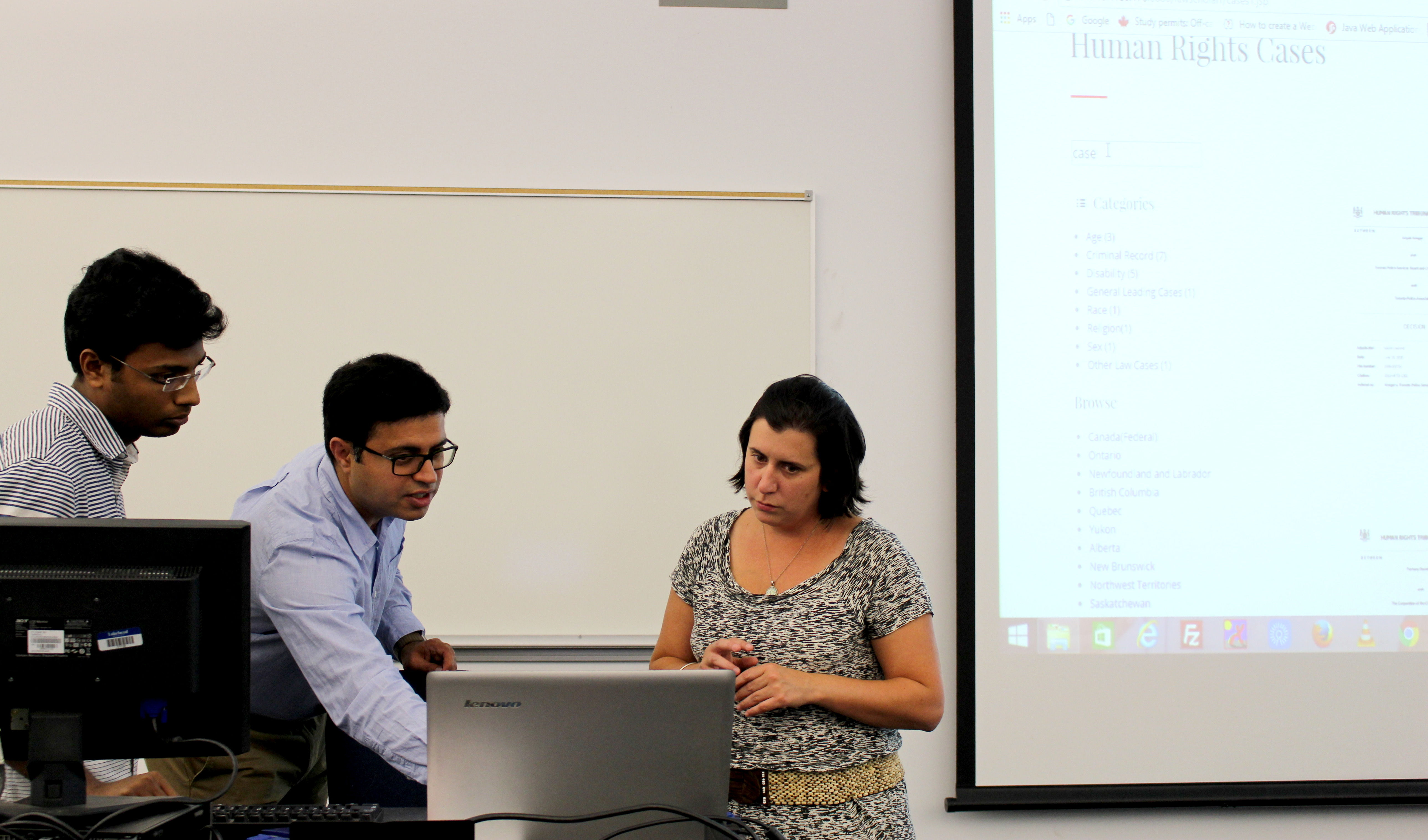Research in Action: New law database will educate the public about human rights decisions

Photo cutline: Drs. Miriam Cohen (right) and Vijay Mago (centre) discuss the prototype
of their human rights decision database with research assistant Jayant Gorantla (left).
Published in The Chronicle Journal on Thursday, October 12, 2017
If you think that your human rights have been violated and you’re considering legal
action, where could you research the outcome of similar cases?
Currently, this information is not easily accessible. But a new project, headed by Dr.
Miriam Cohen, Assistant Professor in the Bora Laskin Faculty of Law at Lakehead
University, and funded by the Canadian Bar Association’s Law for the Future Fund, will
make it much easier to find information about human rights decisions.
As part of Dr. Cohen’s project, a website is being developed to educate the public about
human rights law, ultimately improving access to justice. The website will include a
database of decisions in leading federal and provincial cases across Canada and will
have search functions similar to Google.
“A person who feels they have been discriminated against – for example on the grounds
of race, sex, or disability - could use the resources and database to figure out if they
could pursue a case, even if they have no background in law,” Dr. Cohen said.
“This would help them to decide whether they wanted to seek formal legal advice.”
Five research assistants from the Bora Laskin Faculty of Law worked on Dr. Cohen’s
database, categorizing and summarizing decisions. Casandra Gravel, a second-year law
student, is the most recent addition to the team.
Hailing from Timmins, Ont., Gravel is francophone, and her role in the project has been
to review the leading human rights cases in Quebec and translate them into English.
“Working on this project has been a valuable experience,” she said.
“Simplifying legal information into easily understandable terms not only has the public
benefit of giving a clearer picture of what the law actually says, it also helped me absorb
the information, so that I will retain it going forward. I will also use the database in my
future practice,” Gravel said.
Although the importance of making information about human rights decisions
accessible was clear to Dr. Cohen, she needed help in creating a user-friendly database.
That’s where Dr. Vijay Mago, Assistant Professor in the Department of Computer
Science, came in, with help from his student, Jayant Gorantla.
“The project draws on the latest research in artificial intelligence, document analysis
and algorithm design,” Dr. Mago said. His vision for the database ensured that it would
be accessible for everyone – legal professionals and the general public.
Gorantla is the research assistant responsible for the coding behind the database. He
has been interested in technology since childhood.
“I feel inspired to innovate because one innovation can have an effect on millions of
lives,” he said, adding that he came from India to pursue graduate studies in Computer
Science.
“I love my job,” he said. “Opportunities like this encourage us as students to be curious
and to build confidence in programming. Applying theoretical knowledge from my
classes in a large-scale project has helped me come up with ideas for my own master’s
project.”
Drs. Cohen and Mago expect the database to go live for public use in early 2018.


